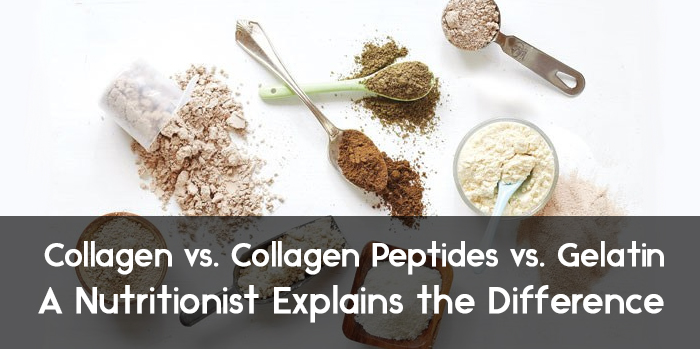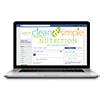What is the Difference Between Collagen, Collagen Peptides, Hydrolyzed Collagen and Gelatin?
Collagen, collagen peptides and gelatin… they’re all terms you’ve likely heard before. But what’s the difference? Should we care? Collagen, collagen peptides and gelatin are used interchangeably because they are all made of the same 18 types of amino acids and provide eight of the nine essential amino acids. On the surface, it sounds like they’re pretty similar. Yet when you take a closer look, there are subtle differences that make each of these proteins unique.
What is collagen?
Collagen is the long-chain of amino acids that builds our skin, connective tissue and bones but cannot be absorbed through our diet. It is made primarily of three amino acids—
proline, hydroxyproline and glycine—which gives it unique functional properties different from all other proteins. This also makes it the most important structural protein in the body.
Collagen is formed from three very long chains of over 1,000 amino acids twisting into a helix conformation. This tightly twisted helix gives collagen the strength to build our body, but is difficult to break down during digestion and too large to cross the intestinal wall, so in it’s un-hydrolyzed, full-length form, collagen is not an effective oral supplement.
What makes collagen peptides different?
Collagen peptides and gelatin are made by breaking down the full-length collagen molecules. They are made of the same amino acids as collagen, but they have different properties. Collagen peptides are more bioavailable – they are better absorbed into the bloodstream because they are much shorter chains of amino acids than collagen and gelatin. Because they’re shorter, collagen peptides are more readily broken down into a form that can enter the bloodstream upon digestion.
After absorption, collagen peptides travel throughout the body, repairing, rebuilding and providing energy. Collagen peptides are shuttled to the different tissues where cells will build the peptides into full-length collagen helices to repair our skin, bones and joints, or the cells can use the amino acids directly for energy.
What about hydrolyzed collagen?
Hydrolyzed collagen and collagen peptides are two names for the same product. Full length collagen is broken down into collagen peptides through a process called hydrolysis, so collagen peptides are frequently also referred to as hydrolyzed peptides.
How is gelatin different from collagen and collagen peptides?
Gelatin is collagen that has undergone partial hydrolysis, which makes it gel. It has not been fully broken into peptides, so it is not absorbed as well as collagen peptides. The partially hydrolyzed chains in gelatin holds on to a lot of water, so supplementing with gelatin can cause bloating and intestinal discomfort. It’s also less versatile than collagen peptides; gelatin will only dissolve in hot water, while collagen peptides will dissolve in both hot and cold liquids. (So you can add collagen peptides to a morning iced coffee or evening cup of tea!)
Summary of Difference Between Collagen, Collagen Peptides, Gelatin and Hydrolyzed Collagen
• Collagen is the most important structural protein in the body. However, full length collagen is ineffective as an oral supplement because of its long, twisted shape.
• Collagen peptides and gelatin are made by breaking down full length collagen molecules. Collagen peptides are more bioavailable and digested more quickly than gelatin due to their shorter length.
• Hydrolyzed collagen and collagen peptides are two names for the same product.
• Gelatin is collagen that has gone through partial hydrolysis, which makes it gel. Gelatin is not absorbed as well and is less versatile than collagen peptides.


 Your email address will never be shared, period.
Your email address will never be shared, period.










